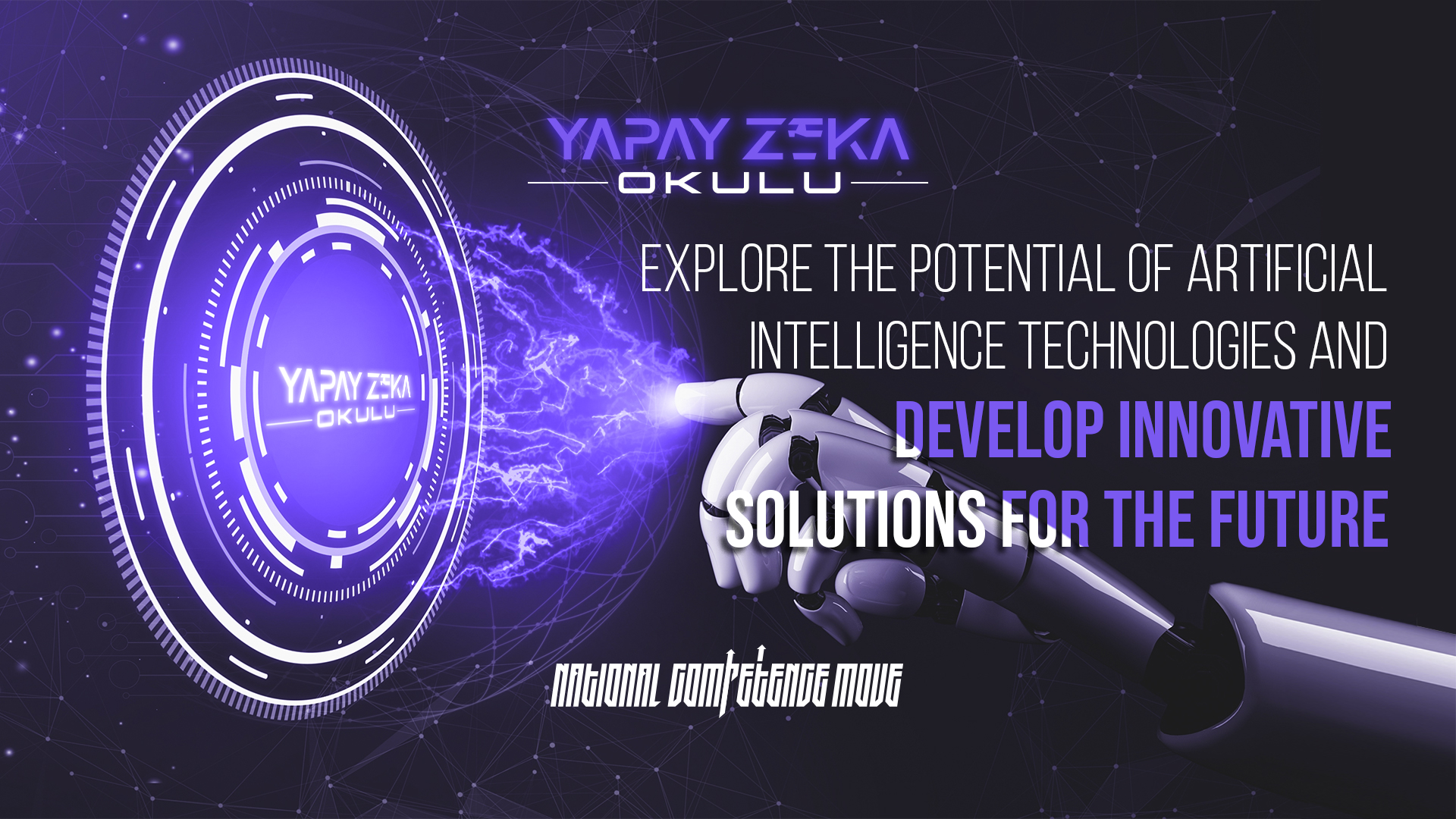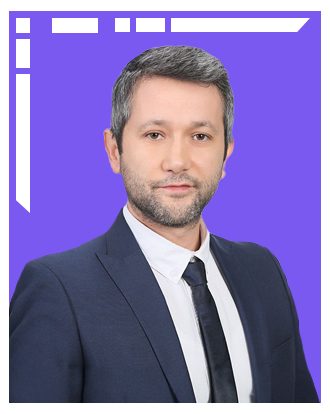





This school aims to equip professionals in the defense sector with the latest knowledge in AI and big data technologies, particularly in the fields of autonomous systems and computer vision. In addition to theoretical information, this course emphasizes practical applications, enabling participants to reinforce how they can apply what they have learned to real-world defense projects. By the end of the course, participants will have the necessary knowledge and skills to effectively develop and implement AI-based solutions.
A portion of the training will be conducted in the classroom, covering theoretical knowledge and scenario-based examples tailored to the topic. During the practical application phase, the following activities will be carried out:
The trainings within the scope of the school are designed for a wide audience aiming to gain knowledge and skills in the use of artificial intelligence in the defense industry and to enhance their expertise in this field. Our target audience includes employees of project-executing institutions and organizations, professionals working within the Defense Industry Agency (SSB) as the procurement authority, experts from public institutions and organizations acting as the requirement authority, industry professionals, and young talents who are new to the sector and eager to direct their careers in this field.
Trainings are designed and realized with the support of industry professionals and academicians with industry experience. Expert Advisory Board (EAB) established in this context sets out the vision of the AI SCHOOL and regularly provides feedback on course contents. Program Coordinators periodically revise the AI School courses and course contents in line with the EAB and participants’ feedbacks.
Expert Advisory Board (EAB) within the AI School provides feedback and gives recommendations on the following topics:
Coordinators within the AI School perform the following activities based on the needs of the Defense Industry:
You can create a preliminary request for an existing course by selecting it from the "Courses" list and filling in the relevant sections under the "Request" tab.
You can create a preliminary request for an existing course by selecting it from the "Courses" list and filling in the relevant sections under the "Request" tab.
If the course you need is not in the existing list or requires customization, you can submit the course content, location, and preferred instructor (if any) here.
If the course you need is not in the existing list or requires customization, you can submit the course content, location, and preferred instructor (if any) here.

Sefa Akca

Güven Orkun Tanık

Berkan Demirel

Mehmet Haklıdır

Bilge Kağan Görür

Şeyda Ertekin
This training aims to provide technical and non-technical personnel working in the defense industry with basic knowledge about artificial intelligence (AI).
This training aims to provide technical and non-technical personnel working in the defense industry with basic knowledge about artificial intelligence (AI). Within the scope of the module, the definition of AI, historical development, and expected developments in the short and medium term will be discussed; awareness will be raised on its applications in the defense sector, the opportunities it offers and the risks it may pose.
There are no prerequisites.
Training will be given in a classroom environment and through presentation files.
NA
This course aims to provide defense industry professionals or those who want to advance their careers in this field with basic and intermediate skills with the Python programming language.
This course aims to provide defense industry professionals or those who want to advance their careers in this field with basic and intermediate skills with the Python programming language.
There are no prerequisites.
Training will be given in a classroom environment, using presentation files. Participants will be expected to practice with the computer.
The aim of the training is to provide participants with basic and intermediate level data processing and data analysis skills.
The aim of the training is to provide participants with basic and intermediate level data processing and data analysis skills. The training aims to provide participants with competencies such as data cleaning, data preparation, and making meaningful inferences from data through examples.
Being able to programme with Python or to have taken YZTS01 course.
Training will be given in a classroom environment, using presentation files. Participants will be expected to practice with computers.
The purpose of this training is to introduce the participants to the basic concepts of uninformed search methods and to explain how to use these methods in real life problems.
The purpose of this training is to introduce the participants to the basic concepts of uninformed search methods and to explain how to use these methods in real life problems. The training aims to provide the ability to formulate search algorithms and use them in practice.
To have basic programming knowledge or to have taken YZTS01 course.
Training will be given in a classroom environment, using presentation files. Participants will be expected to practice with the computer.
The purpose of this training is to teach participants the basic concepts of informed search methods and explain how to use these methods in real life problems.
The purpose of this training is to teach participants the basic concepts of informed search methods and explain how to use these methods in real life problems. The course aims to provide the ability to formulate search algorithms and use them in practice.
To have taken YZTS01, YZTS02 and YZTS03 courses or to have basic level programming and uninformed search methods.
Training will be given in a classroom environment, using presentation files. Participants will be expected to practice with computers.
The aim of this training is to teach the participants the basic concepts and working principles of knowledge-based agents and to provide practical application skills with scenarios for the defense industry.
The aim of this training is to teach the participants the basic concepts and working principles of knowledge-based agents and to provide practical application skills with scenarios for the defense industry.
Having taken YZTS01, YZTS02, YZTS03, YZTS04 courses or mastering basic level programming and search methods with/without prior knowledge.
Training will be given in a classroom environment, using presentation files. Participants will be expected to practice with the computer.
The aim of this training is to teach participants the basic concepts and principles of supervised learning and to demonstrate practical applications of these methods with real-world problems.
The aim of this training is to teach participants the basic concepts and principles of supervised learning and to demonstrate practical applications of these methods with real-world problems.
To have taken the YZFS01 course or to have basic knowledge about artificial intelligence and big data.
Training will be given in a classroom environment, using presentation files. Participants will be expected to practice with the computer.
The aim of this training is to teach participants the basic concepts and principles of unsupervised learning and to demonstrate practical applications of these methods with real-world problems.
The aim of this training is to teach participants the basic concepts and principles of unsupervised learning and to demonstrate practical applications of these methods with real-world problems.
To have taken YZFS01 and YZTS02 courses or to have basic knowledge about artificial intelligence, big data and data processing.
Training will be given in a classroom environment, using presentation files. Participants will be expected to practice with the computer.
The purpose of this training is to teach the participants the basic concepts and principles of deep neural networks and to provide the competence to apply basic deep learning techniques in projects for the defense industry.
The purpose of this training is to teach the participants the basic concepts and principles of deep neural networks and to provide the competence to apply basic deep learning techniques in projects for the defense industry.
To have taken YZTS01 course or to have a basic knowledge of Python programming, artificial intelligence and machine learning concepts
Training will be given in a classroom environment, using presentation files. Participants will be expected to practice with the computer.
The purpose of this training is to teach participants the basic principles of image processing techniques and to provide them with the ability to analyze and integrate image data in projects.
The purpose of this training is to teach participants the basic principles of image processing techniques and to provide them with the ability to analyze and integrate image data in projects. The training focuses on applying basic algorithms for tasks such as image classification, object detection, and feature extraction.
To have taken YZTS01 course or to have basic knowledge of Python programming, artificial intelligence and machine learning concepts
Training will be given in a classroom environment, using presentation files. Participants will be expected to practice with the computer.
The aim of this training is to teach participants the basic principles of computer vision and convolutional neural networks (CNN) and to provide practical skills on how to apply and optimize these architectures in basic computer vision problems.
The aim of this training is to teach participants the basic principles of computer vision and convolutional neural networks (CNN) and to provide practical skills on how to apply and optimize these architectures in basic computer vision problems.
To have taken YZİS08 course or to have knowledge about python programming at basic-intermediate level, data processing with pandas and big data and data discovery, data modeling and data preparation.
Training will be given in a classroom environment, using presentation files. Participants will be expected to practice with the computer.
The aim of this training is to teach participants the basic concepts of computer vision and transfer learning techniques and to provide them with the ability to develop real-life applications using pre-trained models.
The aim of this training is to teach participants the basic concepts of computer vision and transfer learning techniques and to provide them with the ability to develop real-life applications using pre-trained models.
To have taken YZTS08 and YZTS10 courses or to have basic knowledge about Deep Neural Networks and Convolutional Neural Networks.
Training will be given in a classroom environment, using presentation files. Participants will be expected to practice with the computer.
The aim of this training is to teach participants advanced deep neural networks and optimization techniques and to provide them with expertise in their practical use as well as theoretical knowledge of these techniques.
The aim of this training is to teach participants advanced deep neural networks and optimization techniques and to provide them with expertise in their practical use as well as theoretical knowledge of these techniques.
To have taken YZTS01 and YZTS08 courses or to have a basic knowledge of Python programming, artificial intelligence, machine learning and deep learning concepts.
Training will be given in a classroom environment, using presentation files. Participants will be expected to practice with the computer.
The aim of this training is to teach participants table-based reinforcement learning methods and to demonstrate the applicability of these methods in solving complex problems specific to the defense industry.
The aim of this training is to teach participants table-based reinforcement learning methods and to demonstrate the applicability of these methods in solving complex problems specific to the defense industry. Additionally, it is aimed to provide participants with expertise in techniques such as Q-learning and dynamic programming.
To have taken YZTS01 and YZTS08 courses or to have a basic knowledge of Python programming, artificial intelligence, machine learning, deep learning and reinforcement learning.
Training will be given in a classroom environment, using presentation files. Participants will be expected to practice with the computer.
The aim of this training is to teach participants policy-based reinforcement learning methods and to demonstrate the applicability of these methods in solving complex problems specific to the defense industry.
The aim of this training is to teach participants policy-based reinforcement learning methods and to demonstrate the applicability of these methods in solving complex problems specific to the defense industry.
To have taken YZTS01 and YZTS08 courses or to have a basic understanding of Python programming, artificial intelligence, machine learning, deep learning and reinforcement learning concepts.
Training will be given in a classroom environment, using presentation files. Participants will be expected to practice with the computer.
The aim of this training is to teach participants advanced algorithms and architectures of autonomous systems and to provide competence in real-time decision-making, path planning and multi-agent coordination for defense industry use cases.
The aim of this training is to teach participants advanced algorithms and architectures of autonomous systems and to provide competence in real-time decision-making, path planning and multi-agent coordination for defense industry use cases. The training aims to provide practical knowledge through applied scenarios.
To have taken YZTS01 and YZTS08 courses or to have a basic understanding of Python programming, artificial intelligence, machine learning, deep learning and reinforcement learning concepts.
Training will be given in a classroom environment, using presentation files. Participants will be expected to practice with the computer.
The aim of this training is to provide participants with advanced knowledge and skills in big data processing, analytical techniques and data discovery methods. The training aims to provide expertise in big data infrastructures, distributed computing and data visualization.
The aim of this training is to provide participants with advanced knowledge and skills in big data processing, analytical techniques and data discovery methods. The training aims to provide expertise in big data infrastructures, distributed computing and data visualization.
To have taken YZTS01 and YZTS02 courses or to have basic knowledge of Python programming and data processing with Pandas
Training will be given in a classroom environment, using presentation files. Participants will be expected to practice with the computer.
The purpose of this training is to provide participants with advanced knowledge of data modeling concepts and methods and the ability to create effective data models in big data projects.
The purpose of this training is to provide participants with advanced knowledge of data modeling concepts and methods and the ability to create effective data models in big data projects. The training aims to specialize in database design, relational modeling and data warehouse configurations.
To have taken YZİS06 course or to have knowledge about Python programming at basic - intermediate level, data processing with pandas, and big data and data discovery.
Training will be given in a classroom environment, using presentation files. Participants will be expected to practice with the computer.
The aim of this training is to teach participants advanced techniques of data preparation for machine learning and analytical processes and to provide them with high-quality data preparation skills on big data platforms.
The aim of this training is to teach participants advanced techniques of data preparation for machine learning and analytical processes and to provide them with high-quality data preparation skills on big data platforms. The training aims to provide expertise in basic steps such as data cleansing, merging and transformation.
To have taken YZİS06 course or to have knowledge about Python programming at basic - intermediate level, data processing with pandas, big data and data discovery, data modeling
Training will be given in a classroom environment, using presentation files. Participants will be expected to practice with the computer.
The aim of this training is to provide participants with advanced knowledge in the processes of training and evaluating machine learning models on big data and to provide expertise in data analytics with distributed computing and parallel processing techniques.
The aim of this training is to provide participants with advanced knowledge in the processes of training and evaluating machine learning models on big data and to provide expertise in data analytics with distributed computing and parallel processing techniques. The training aims to develop solution strategies for problems such as model evaluation, imbalance and generalization.
To have taken YZİS06 and YZİS08 courses or to have knowledge about python programming at basic-intermediate level, data processing with pandas and big data and data discovery, data modeling and data preparation.
Training will be given in a classroom environment, using presentation files. Participants will be expected to practice with the computer.
The aim of this training is to teach participants the basic technologies of generative AI techniques and the concepts of LLMs, and to provide them with the competence to apply methods such as natural language processing and attention mechanisms.
The aim of this training is to teach participants the basic technologies of generative artificial intelligence techniques and the concepts of large language models (LLMs), and to provide them with the competence to apply methods such as natural language processing and attention mechanisms.
To have taken YZİS02 course or to have knowledge about Basic - Intermediate Level Deep Neural Networks.
Training will be given in a classroom environment, using presentation files. Participants will be expected to practice with the computer.
The aim of this training is to teach participants the basic principles of advanced techniques such as generative AI, self-calling neural networks and LLMs and to gain competence in the performance optimization and reliability increasing processes of these models.
The aim of this training is to teach participants the basic principles of advanced techniques such as generative artificial intelligence, self-calling neural networks and large language models (LLMs) and to gain competence in the performance optimization and reliability increasing processes of these models.
To have taken YZİS02 and YZİS10 courses or to have intermediate to advanced knowledge in the fields of deep neural networks, self-call neural networks and natural language processing.
Training will be given in a classroom environment, using presentation files. Participants will be expected to practice with the computer.

Savunma Sanayi Akademi
Üniversiteler Mahallesi ODTÜ TEKNOKENT, 06800, Çankaya/Ankara/Türkiye
+90 312 424 19 62
akademi@ssb.gov.tr